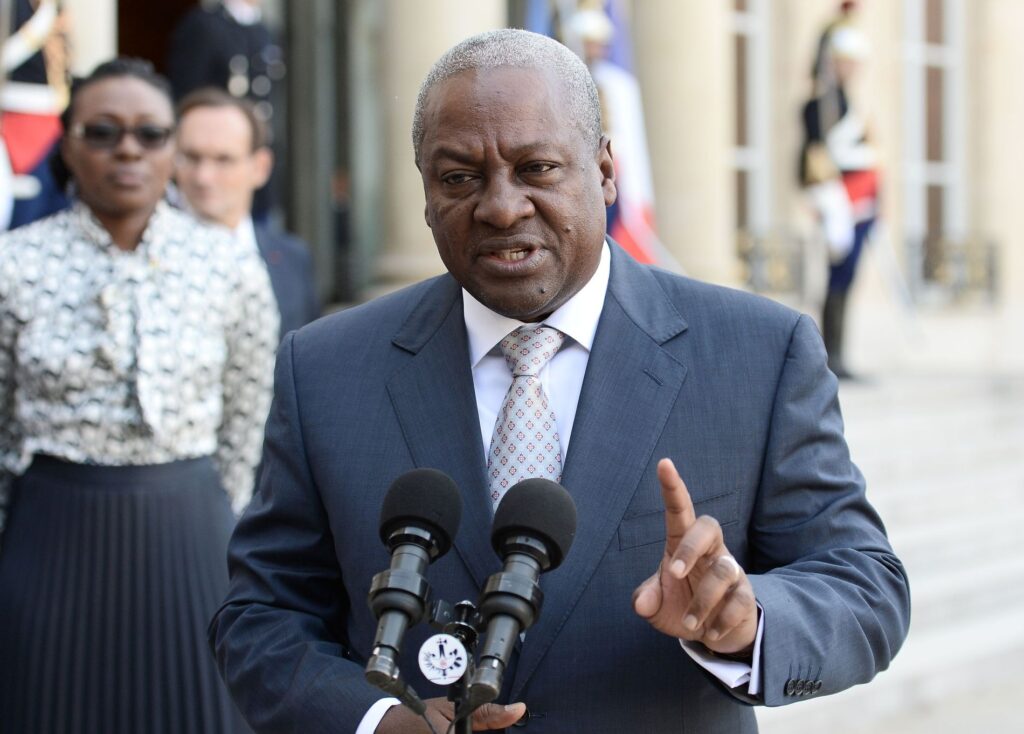In a bold and unequivocal condemnation, former President John Dramani Mahama has taken aim at a directive that has sent shockwaves through Ghana’s political landscape. The directive, which instructs Parliament to refrain from transmitting a controversial bill for presidential assent, has sparked fierce debate and raised concerns about the erosion of democratic principles and institutional independence.
The genesis of the controversy can be traced back to the passage of the Electronic Transactions (E-Levy) Bill by Ghana’s Parliament. The bill, which seeks to impose a tax on electronic transactions, has faced staunch opposition from various quarters, including civil society groups, opposition politicians, and ordinary citizens who fear its potential impact on the cost of living and economic activity.
Amid mounting pressure, the bill was passed by Parliament and forwarded to President Nana Akufo-Addo for his assent, a routine procedure in Ghana’s legislative process. However, in a surprising twist, reports emerged of a letter purportedly issued by the presidency, instructing Parliament to withhold the transmission of the bill until further notice.
The directive, allegedly signed by the Secretary to the President, cited the need for further consultations and revisions to the bill before it could be presented to the president for assent. The move prompted outrage and condemnation from opposition politicians, who accused the government of undermining the independence of Parliament and subverting the democratic process.
Former President John Dramani Mahama wasted no time in joining the chorus of dissent, denouncing the directive as a blatant affront to the principles of democracy and constitutional governance. In a strongly worded statement issued to the press, Mahama accused the government of resorting to authoritarian tactics to stifle dissent and circumvent parliamentary oversight.
“The directive to withhold the transmission of the E-Levy bill is a clear violation of the separation of powers and a dangerous assault on our democratic institutions,” declared Mahama. “It undermines the role of Parliament as the supreme legislative body and sets a dangerous precedent for executive overreach.”
The former president’s condemnation resonated with many Ghanaians who view the directive as a threat to the checks and balances that underpin the country’s democratic system. Critics argue that by seeking to control the legislative process and dictate the terms of parliamentary proceedings, the government is undermining the principles of accountability and transparency.
Furthermore, concerns have been raised about the potential economic implications of delaying the implementation of the E-Levy. Proponents of the bill argue that it is necessary to shore up government revenue and finance critical development projects, particularly in the wake of the COVID-19 pandemic. However, opponents warn that the levy could exacerbate the burden on already struggling businesses and consumers.
In response to the outcry, government officials have sought to downplay the significance of the directive, insisting that it is merely a procedural matter aimed at ensuring thorough scrutiny of the bill before it becomes law. They have also emphasized the importance of consensus-building and stakeholder engagement in the legislative process.
However, such explanations have done little to assuage the concerns of critics, who view the directive as symptomatic of a broader pattern of executive overreach and disregard for constitutional norms. The controversy has reignited debates on the need for institutional reforms to safeguard the integrity of Ghana’s democratic institutions and protect the rights of citizens.
As the fallout from the directive continues to unfold, Ghana finds itself at a critical juncture, grappling with questions of governance, accountability, and democratic legitimacy. Former President John Dramani Mahama’s condemnation serves as a rallying cry for those who cherish the principles of democracy and seek to uphold the rule of law in the face of encroaching authoritarianism. Whether the government heeds the calls for reform remains to be seen, but one thing is clear: the eyes of the nation are watching closely as Ghana navigates the complexities of its democratic journey.
story filed by: Nana kwaku Duah





